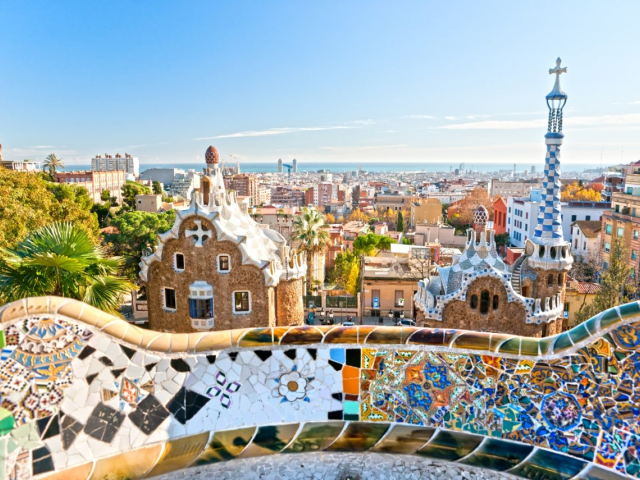
Park Güell
Park Güell is Gaudi’s stunning project, built from 1903 to 1914. The architect’s idea was to create a fantastic garden city. However, its creator died before the park officially opened in 1926. Park Güell is a park system composed of beautiful gardens and whimsical architectural elements. Some of the buildings in Park Güell offer breathtaking views of Barcelona. Designing the park, Gaudi took care of all the necessary infrastructure, including picturesque streets and squares as he envisaged an elite residential complex in its territory. The Hall of the Hundred Columns in Park Güell strikes the imagination. It stands above an unusual staircase. On its roof, there is a brightly colored bench that envelops the contours of the complex. Later, the city authorities bought that land from Count Eusebi Güell and transformed it into a vacation spot. Visitors are especially delighted with Gaudí’s spectacular Gingerbread House. Park Güell is included in the list of UNESCO World Heritage Sites.
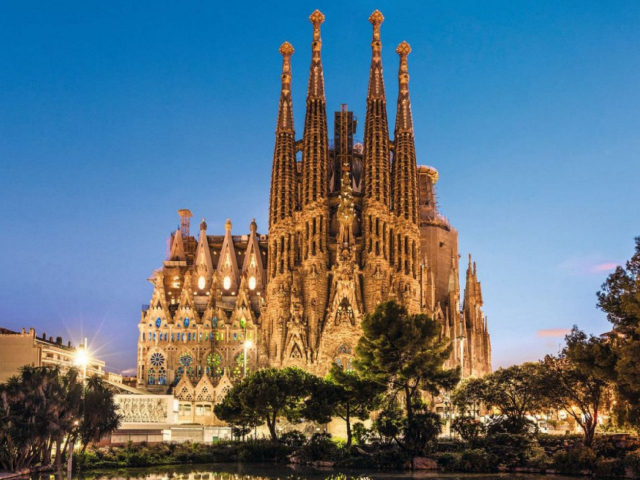
Sagrada Família
The Sagrada Família is one of the most recognizable churches in the world. The architect had a brilliant idea – to embody in stone the biblical saints and the main commandments of the New Testament. Gaudí devoted the last 40 years of his life to this work. He envisaged the church with 18 apostolic towers raising to the height of 170 meters. It was important to the architect that the structure was not higher than Barcelona’s highest mountain. Gaudí believed that a man-made building should never exceed a natural, God-created mountain. The Sagrada Família was designed as a surreal Gothic cathedral. Its walls are adorned with images of saints, elements of the surrounding nature, the starry sky, and the Universe. The construction began in 1883. However, at the time of Gaudí’s death in 1926, less than a quarter of the project was complete. In fact, its construction continues to this day. The architect kept all the schemes and plans in his memory, so it took years to make further calculations and continue the work. It became possible only thanks to a NASA program that calculates the trajectory for space projects.
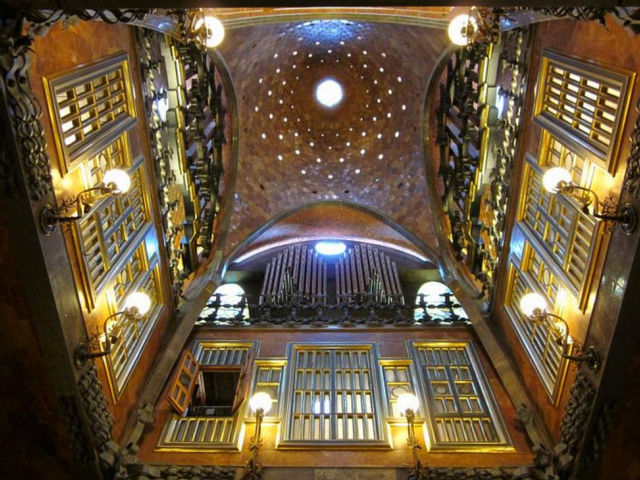
Palau Güell
The Palau Güell is a remarkable mansion designed by Antoni Gaudí for Count Eusebi Güell who was also his patron and friend. Gaudí’s fantastic project was built between 1886 and 1888. This unique palace covers an area of around 400 square meters. Its style combines centuries-old traditions, innovative techniques, and the architect’s clever ideas used in his other works. The signature of this structure is the chimneys in the form of bright outlandish sculptures. The building owes its magnificence to a special technique of facing with fragments of ceramics and natural stone. Visitors are marveled at the view of the city and the garden offered by the whimsical roof terrace of the palace. The Güell mansion was designed to welcome wealthy guests. Its interior gives an impression of a magic place for sophisticated evenings. The size of the structure allowed guests to enter it on horse-drawn carts. The owners then invited them to a separate room with holes in the ceiling that created an effect of a starry sky. This is one of the first major projects of Antoni Gaudi, which is considered to be completed.
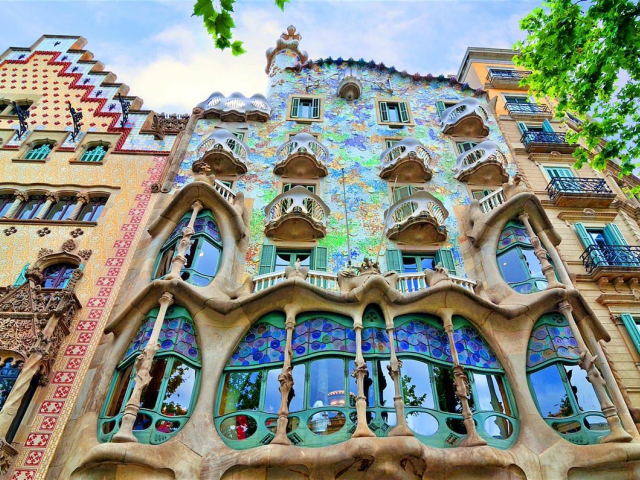
Casa Batlló
Casa Batlló is another charming building created by Antoni Gaudi. Unlike his other structures, this residence was not created from scratch but was entirely renovated. Its facade is made in the Trencadis technique. The building is decorated with a colorful mosaic made of broken ceramic tiles. In fact, such an effect is the architect’s signature. Gaudi repeatedly used it when creating his other masterpieces. Built between 1904 and 1906, Casa Batlló with its mosaic facade able to change color depending on the time of day resembles a dragon. Its arched roof is likened to the back of a dragon. Other names for the building are the House of Bones, the Yawning House, etc. The residence looks distinct thanks to its spectacular tower, twisted balconies, elegant window bars, whimsical gables, and a “dragon” roof. While creating the inner yard, Gaudi used a special technique that involves a play of light and shadow. To enhance the effect, ceramic tiles were gradually laid from white to light blue and blue. The unusual roof of Casa Batlló is complemented by magnificent chimney towers.
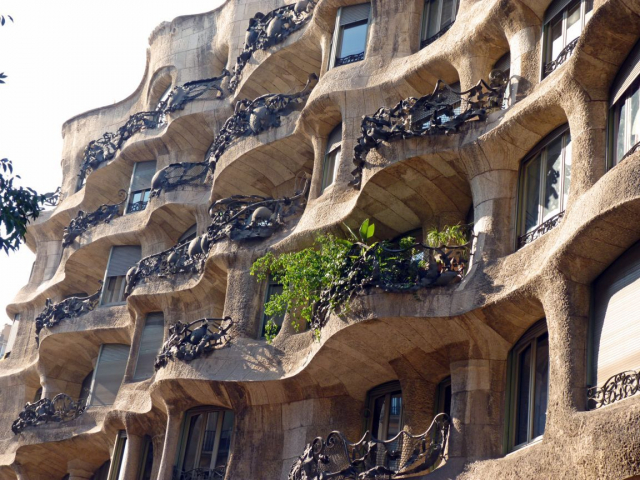
Casa Milà
Casa Milà is the final architectural masterpiece by Antoni Gaudi on our list. This impressive building is also known as La Pedrera, meaning "the stone quarry". Built between 1906 and 1912, Casa Milà was commissioned by entrepreneur Pere Milà. This is the last residence designed by the brilliant architect. Experts consider it the most incredible residential project not only in Barcelona but also in the entire world. Its huge stone facade looks impressively powerful. Notably, it was a revolutionary architectural technology for its time. The building features winding iron balconies, a huge rooftop terrace, and an open floor plan. However, at the beginning of the 20th century, the Barcelona authorities considered this unique technique odd. Both the architect and his customer were even fined for non-compliance with urban planning standards. With time, Casa Milà turned into an architectural masterpiece. In fact, to build the house, Gaudi used technology that was decades ahead of its time. Leading architectural institutions began to implement it only a hundred years after Gaudi. Currently, the innovations of this genius architect are used in the construction of unique structures.
 Български
Български 
 Русский
Русский English
English Bahasa Indonesia
Bahasa Indonesia Bahasa Malay
Bahasa Malay ไทย
ไทย Español
Español Deutsch
Deutsch Français
Français Tiếng Việt
Tiếng Việt 中文
中文 বাংলা
বাংলা हिन्दी
हिन्दी Čeština
Čeština Українська
Українська Română
Română
